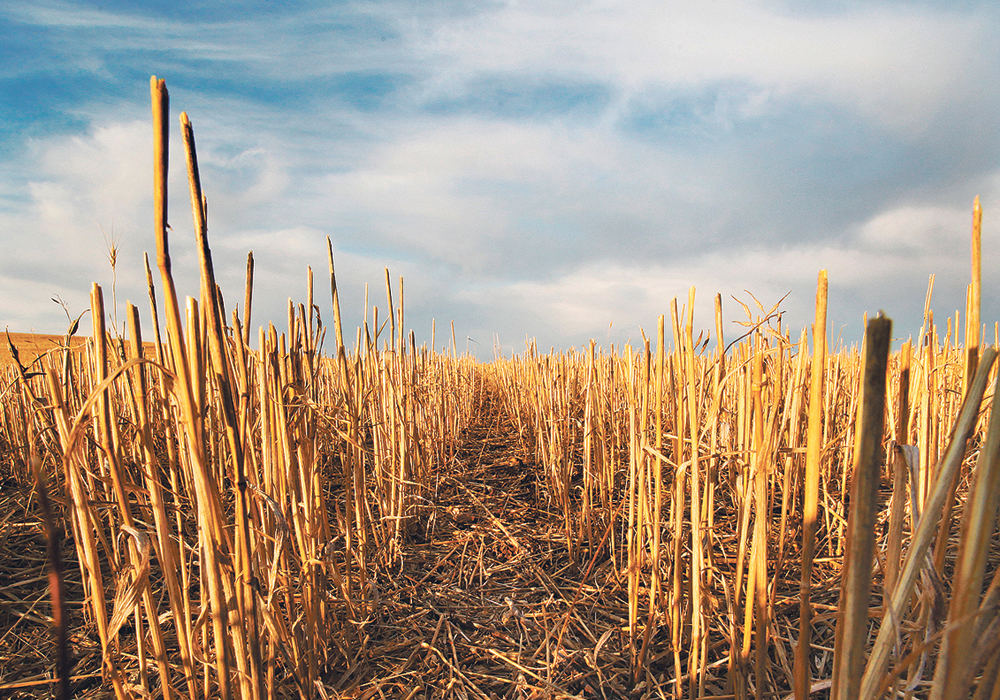Prairie producers get top marks for carbon sequestration but fall down when it comes to planting cover crops
OAK HAMMOCK MARSH, Man. — The grades are in.
Western Canadian farmers get a grade of A for increasing the amount of carbon in the soil over the last 30 years. But the same farmers are almost failing when it comes to another soil health practice — cover cropping.
Mario Tenuta, University of Manitoba soil scientist, says prairie farmers get a D grade for adoption of cover crops and keeping fields green as long as possible. In comparison, eastern farmers get a B.
“Flying over southern Ontario in the fall … it’s amazing how much cover is on the land, compared to what you see on the Prairies,” said Tenuta, who presented a fictional soil health report card while speaking at the Summit on Canadian Soil Health held in early October at the Ducks Unlimited Canada headquarters north of Winnipeg.
Read Also

Farming Smarter receives financial boost from Alberta government for potato research
Farming Smarter near Lethbridge got a boost to its research equipment, thanks to the Alberta government’s increase in funding for research associations.
The report card was half serious and half a joke, but Tenuta used it to explain how Canadian farmers are doing regarding soil health.
Overall, Tenuta gave farmers passing grades:
- Awareness of soil health: West B+, East A
- Increasing organic carbon: West A, East C-
- Cover crops: West D, East B
- Nutrient management: West B+, East C
Most producers are aware of the attributes of healthy soils, like organic matter and microbial life, but many aren’t taking steps to improve soil health on their farms, Tenuta said.
“There’s a need to use the knowledge about soil health on the farm and in the (real) world.”
It’s hard to know if farmers are following practices that bolster soil health because there’s little information on such behaviour.
“We really need national surveys,” Tenuta said. “We need this (data) to determine the trajectory and what trends are occurring.”
As for practices that store carbon in the soil, western farmers get an excellent grade because of direct seeding and reduced tillage.
Ontario farmers received a C minus in this category, partly because of corn/soybean rotations. As well, Eastern Canada has lost a substantial amount of forage land and perennial crops, which are critical for boosting organic matter in the soil.
Tenuta is worried that more forage and pasture land will soon disappear in Canada. Consumers are turning away from meat and toward plant proteins, which means less cattle and more annual crops.
Western growers may have earned an A for increasing organic carbon but they shouldn’t be complacent. Degraded and eroded soils, especially on hilltops, may be costing farmers billions each year.
David Lobb, Tenuta’s colleague at the University of Manitoba, has calculated the cost of wind, water and tillage erosion to Canadian agriculture.
Lobb believes 10 percent of Canada’s cropland has moderately to severely eroded soils. The poorer yields, on 10 percent of the land base, is costing Canadian farmers about $3.1 billion each year in lost productivity.
“The areas where soil erosion has been most severe, like the hilltops … you have almost no capacity to grow crops,” he said.
Farmers need to improve those degraded areas, possibly by pushing soil back up to the top of the hill.
As for cover crops, or a crop grown to benefit the soil, most western farmers have heard of them but adoption has been slow. Many producers continue to say that cover crops don’t work on the Prairies because of the short growing season.
“I think we can deal with that,” Tenuta said, possibly by under-seeding a cover crop after the annual crop is established. “Once we take off the main crop, then it (the cover crop) could really put on some biomass for the winter.”
Such practices might work, but it’s hard to know until they are thoroughly studied and tested.
That’s why Tenuta is promoting a national centre for excellence in soil health research, where experts from across the country can come together.
“Soil health is one of these areas that deserves national attention,” Tenuta said. “It (a national centre) is timely and we need it.”


















